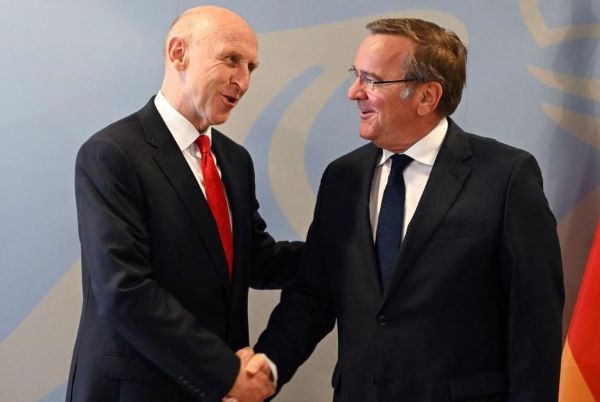The United Kingdom and Germany have signed a mutual defence pact, with an eye on countering the increasing security threat from Russia, among others.
The deal is sealed on Wednesday and covers everything from joint missile development to extra exercises in the Baltics. The agreement also covers hosting rights for submarine-hunting planes in Scotland involving a major artillery factory deal for Dusseldorf-based weapons makers Rheinmetall.
The deal will see the United Kingdom and Germany work together systematically for years on a range of ground-breaking defence projects across air, land, sea, space, and cyber. The UK and Germany will work jointly to rapidly develop brand-new extended deep-strike weapons that can travel further with more precision than current systems.
In a press release, John Healey, the UK Ministry of Defense said that the agreement between Europe’s two largest defence spenders will strengthen national security and economic growth in the face of growing Russian aggression and increased threats.

The agreement comes as the war launched by Russia’s full-scale invasion of Ukraine in February 2022. Ukraine and its European allies are anxious regarding the result of November’s US presidential election.
Healey said that the a need for Europe to bolster its own security and for the United Kingdom to play a big role in NATO. He said, “is the driving force behind our NATO-first UK defence strategy, and behind our rest of UK relations with Europe.
Healey said at a news conference in London alongside German Defense Minister Boris Pistorius that allies are out of strategic strength and they must do more together.
Under this agreement, German submarine hunter aircraft are expected to operate periodically from a Scottish military base to patrol the North Atlantic. The allies will work closer together to protect major underwater cables in the North Sea.
Both countries said that they will also cooperate to prioritize developing long-range strike weapons. The Officials say the agreement will mean the British and German forces committed to NATO in Estonia and Lithuania will operate together more closely. It ensures that land forces on NATO’s eastern flank remain a strong deterrent and prepare to fight and win if required.
Britain and Germany also expected to merge to develop new land-based and aerial drones. The German Defense Minister said that they must not take security in Europe for granted. He also added that Russia is waging war against Ukraine, so it is increasing its weapons production immensely and has repeatedly launched hybrid attacks on its partners in Eastern Europe.
He also said that with the Trinity House Agreement, they are showing that the NATO allies have recognized what these times require and are determined to improve their deterrence and defence capabilities.


